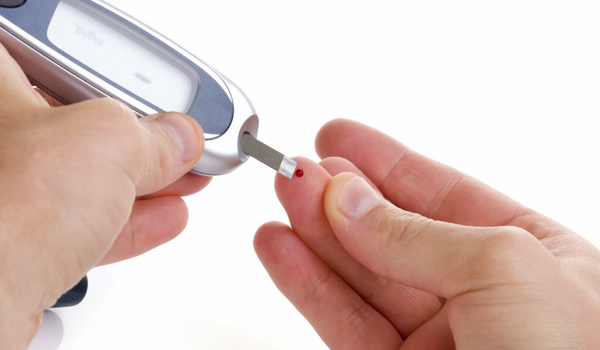Low Carb Diets – Facts and Impact on Weight Gain
Addressing the Obesity Epidemic: How Low-Carb Diets Fit In
Weight gain and obesity have become causes of health concerns in the Western world. Obesity in particular is one of the leading causes of preventable death in the world today. Studies have been conducted to establish the reasons why the world population seems to be gaining weight. Research has shown, for instance, that the general weight of the population today, is much higher than it was in the 1960s.
What are the factors that have contributed to this turn of events and what are the intervention measures that can be instituted to control it? Studies have shown that although our children still engage in physical exercises, just like the children of yesteryears, they still add weight and in some cases get obese. For older people, lack of exercise, among other issues has been cited as a reason for weight gain or becoming fat.
Obesity and weight gain have been attributed to the foods we eat. Research shows that we have increased our food intake which unfortunately contains a higher percentage of sugar than what the world population used to ingest about fifty years ago. Also, the amount of fat that we eat has considerably increased.
This coupled with a lack of exercise has been cited as the leading cause of weight gain. It’s a fact that when we get large portions of fatty foods, creamy desserts, alcohol, and soft drinks full of sugar, our calorie intake gets higher. With a higher calorie intake, we are expected to do a lot of exercises to burn the excess calories. If this is not done, there is a calorie pile-up that leads to weight gain.
The solution to these problems lies in the ability to change our eating habits. One way of controlling unnecessary weight gain is eating low-carb foods. This way, the amount of calories in the food is closely controlled and helps in making one healthier.
Low-carb diets have been defined differently depending on whether the point of discussion is centered on the number of calories derived from carbohydrates or the percentage of carbohydrates in a diet. Generally, though, low-carb diets can be described as those diets that help the body to derive between 5% to 45% of calories from Carbohydrates. The normal percentage of calories that is supposed to be derived from Carbohydrates, according to the U.S. guidelines on health is between 50% to 65%. Therefore, a low-carb diet refers to a conscious effort to try and limit the intake of foods with high carbohydrate levels, especially those that cause a significant rise in blood sugar.
Although the debate on the advantages of a low carb diet is still going on, the tolerance of carbohydrates in the body indeed varies from person to person. This type of diet, then, will suit or benefit those who are sensitive or whose tolerance to carbohydrates is low. The approach is to encourage the reduction of the intake of carbohydrates to levels that the body can tolerate. This approach targets the reduction or elimination from our diets foods like potatoes, white rice, white flour, and sugar from the diet.
The reduction of carbohydrate intake has been known to cause weight loss in people. To control this, a low-carb diet should be closely monitored so that immediate signs of weight loss are noticed; the intake of carbohydrates is slowly increased until the body can control blood glucose. It’s also advisable to embrace the ketogenic diet where the body generates energy from body fats instead of glucose. This leads the body into what is called fat-adaptation or ket-adaptation. This adaptation encourages body metabolism which leads to improvement of stamina. Energy from fat is long lasting unlike energy from glucose which quickly diminishes.
Understanding Low Carb Diets: What They Are and How They Work
We often hear about low-carb diets and how successful they prove to be in losing weight, but what is a low-carb diet exactly? The term “low-carb” means low in carbohydrates. Carbohydrates are usually found in foods like pasta, potatoes, fruit, bread, and rice. A low-carb diet does not entail any specific diet nor does it include well-defined steps to losing weight.

It is a rather loose term that varies according to the person who uses it. Some common features though, include consuming foods that are low in carbohydrates and glycemic. The consumption of carbohydrates leads the body to excrete insulin.
As carbohydrates get digested, glucose – the effect of insulin excretion – either gets burned by our body if we need immediate energy or else gets stored as fat.
More seriously, after consuming a meal that consists mainly of carbohydrates, the level of insulin in our body goes suddenly up and after a short time suddenly down. This effect causes us to be hungry only after 2 or 4 hours from our last meal, leading us to a vicious circle of being hungry, then eating and finally storing fat.
The main way to define a low-carb diet, following the initial question “What Is A Low-Carb Diet?”, is to clarify whether you are talking about the actual carbohydrate that an adult consumes daily or about the percentage of the calories in a person’s diet that comes from carbohydrates.
The usual amount of calories that are allowed in an adult’s diet is about 50-60%. So any percentage of calories coming from carbohydrates that is below that can be thought of as low carb.
The most common misconception about low-carb diets is that people who follow this kind of eating plan are striving to consume zero amount of carbs. That is not only untrue but it is also near impossible considering that carbohydrates are hidden in most of the food we consume, especially processed food.
A diet low in carbs, as the name itself demonstrates, tries to reduce the carbohydrates to a low level, not eliminate them.
Another common myth is that a low-carb diet forbids you from eating fruits and vegetables. The truth is that this food category is rich in carbohydrates, but that does not mean one should eliminate them from their diet. Fruits and veggies are the carbohydrates one should consume in a diet that is low of, but not deprived of carbs.
Among the benefits one could gain from following a low-carb diet, is first and foremost the loss of weight and the increase in energy. People find themselves to be less sleepy and have better concentration and some cases have shown that people are experiencing a better mood.
Bad thoughts and feelings seem to be seriously reduced or lifted away. One cannot overstate the beneficial results of low-carb eating habits. People have noticed improvements in their metabolism, a benefit that is considered to be a kick-start for a diet focused on losing weight, even if the weight loss is initially insignificant. A shift in the metabolism is indispensable on the road to a healthy way of life and a weight loss process.
Safety Concerns: Are Low-Carb Diets Safe for Everyone?
Obesity must be the most widely spread issue worldwide irrespective of demographic or geographic differences. It has gained so much attention lately that the concept of weight loss has opened up thousands of lucrative business opportunities. Ironically this commercialization seems to hurt actual weight loss.
Calorie intake and burning calories, the two main variables of the weight loss equation have been exaggerated so much in the commercial world that in some cases some weight loss programs are a threat to good health.

Low-carb diets came into existence as a solution for maintaining the calorie intake variable at precise levels. How it helps you to lose weight is simple logic. Once the intake drops the body starts to make use of the stored fat which leads to weight loss. Of course, it will lead to weight loss but will it be a safe process?
The answer is not a simple yes or a no. Even though the weight loss gurus emphasize the importance over and over again the nutritionists and the medical community bear a different opinion. The established opinion is that no matter how effective the results are unless cutting the carbohydrates is done at moderate levels the side effects will lead to disorders in bodily functions. Not only moderate but also it has to be properly chosen.
For example, if you reduce the fat intake without paying attention to the type of fat it might even lead to elevated blood cholesterol levels. You should have adequate knowledge to determine what should be included and what shouldn’t be. Here according to the example, a properly designed diet plan would have included polyunsaturated fats and mono-unsaturated fats which are considered safe.
The same theory applies to all the nutrients just like fats. Some diet plans even advise to refrain from fruits and vegetables. Such plans do more harm than good. A restriction on fruits like bananas or watermelons that have a high glycaemic level might at least have logic to support it. But limiting all the fruits and vegetables is a baseless advice that will deteriorate your health.
Reduced intake of calcium-rich food like whole grains could even cause serious conditions like osteoporosis. Women with calcium deficiencies tend to suffer from menstrual issues. Most low-carb diet plans focus more on protein intake. Unnecessary amounts of protein make the kidneys work harder to remove the excess waste produced by proteins. Accumulation of harmful waste products might cause kidney stones.
Most importantly before selecting a diet plan, one should understand his or her body well. A kidney patient should pay attention to the proteins while a heart patient should concentrate more on the fats. Likewise, numerous factors should be taken into account before following a low-carb diet.
Changes in your lifestyle will require changes in diet plans too. If you start working out or body building the energy demand of the body is different from what it used to be. Or if you got pregnant changes should come immediately. In cases like these consulting a professional is a must.
Extremely “low carb” diets might not be safe. But make them “correct carb” diets and get the lean body you always dreamed of while being in good health.
Exploring the Benefits of Low-Carb Diets
When you choose a diet, you want to make sure there are plenty of positive benefits beyond losing weight. You want to be healthier overall by eating in the manner the diet instructs you to eat daily. You also want to be able to follow the plan for life instead of just a few weeks or months. The benefits of a low-carb diet will provide a healthy daily plan you can implement for life.

You may not realize that eating carbs can increase the chance of negative health issues. By reducing the volume of carbs daily that you eat, some medical conditions you often experience may occur less often. The frequency of headaches, joint pain, and trouble concentrating will diminish when you reduce the intake of carbs. This may help you reduce the amount of pain medicine you take when the pain of headaches and joints goes away. So you will feel healthier and save money on medicine with the benefits of a low-carb diet.
Often when you diet mood swings can cause the process to be difficult. The highs and lows of mood and energy can cause you to binge eat. Another benefit of the low-carb diet is the balancing of mood and energy. The body gets more consistent energy from protein and other nutrients than from carbs. Carbs bring on short-term energy spurts that will drop your energy level quickly once the carbs are digested. By lowering the volume of carbs you eat, your energy will come from other nutrients that are more consistent energy reducing mood and energy swings.
If you enjoy exercise and want to tone and build muscle tissue which helps fight fat in your body, a low-carb diet can help. After a workout, your muscles are very sensitive to insulin and do not need as many carbs as some people may think. By eating a low-carb diet, your muscles after a workout will draw in more amino acids from your meal. The amino acids will help the muscles heal from the workout quicker and burn more fat.
The impact or prevention of diabetes can be helped by a low-carb diet. If you have diabetes a low-carb diet may help balance your insulin level more throughout the day. If you have family members with diabetes and want to avoid getting the disease yourself, a low-carb diet is a good healthy way to naturally balance your insulin.
So as you can see, there are many benefits to a low-carb diet beyond just losing weight. You will see an improvement in your weight but you will also have more energy and feel healthier. That is the goal of losing weight as well; to be healthier. Eating more vegetables and proteins as well as fruits and nuts can be a good start to a low-carb diet. Gradually reduce your intake of breads, sweets, and items made from white flour and white sugar. You can find many low-carb diet recipes for free on blogs, websites, and food preparation television shows.







